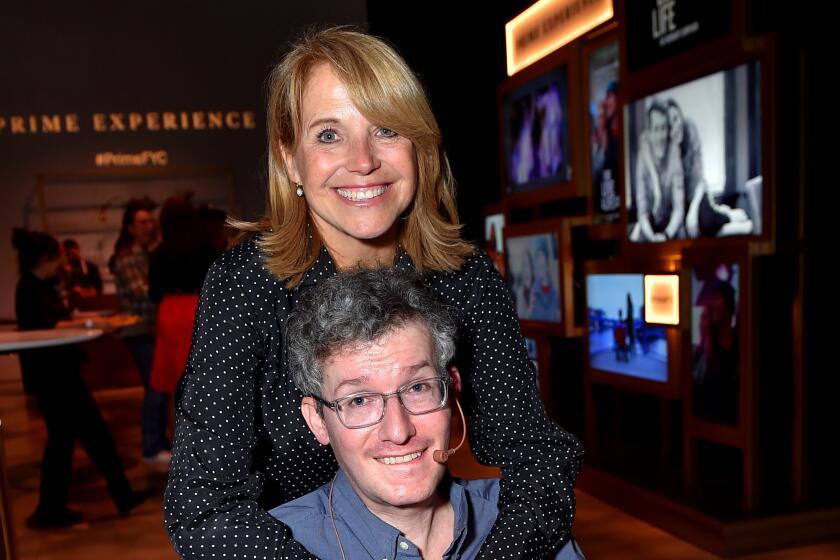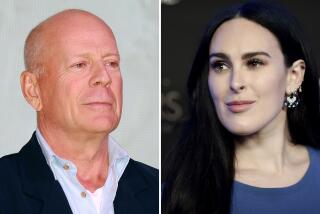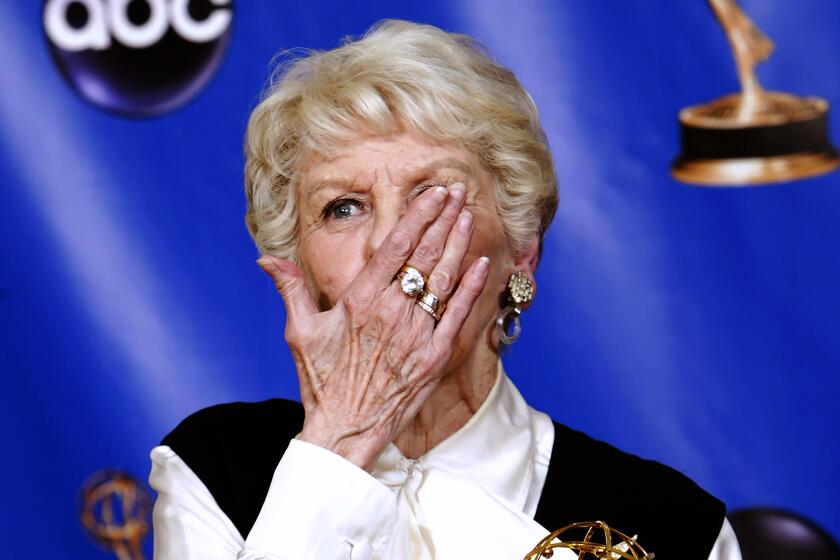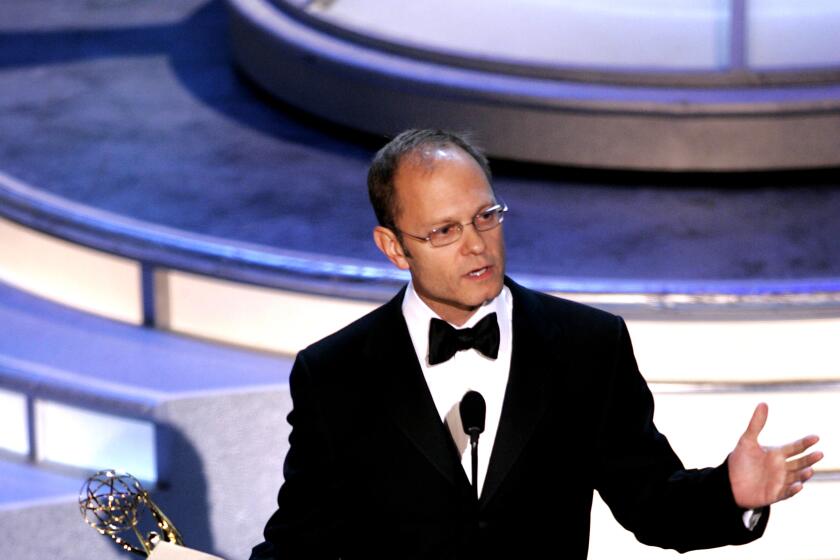‘For Love & Life’ tracks one man’s journey from ALS diagnosis to big-time fundraiser
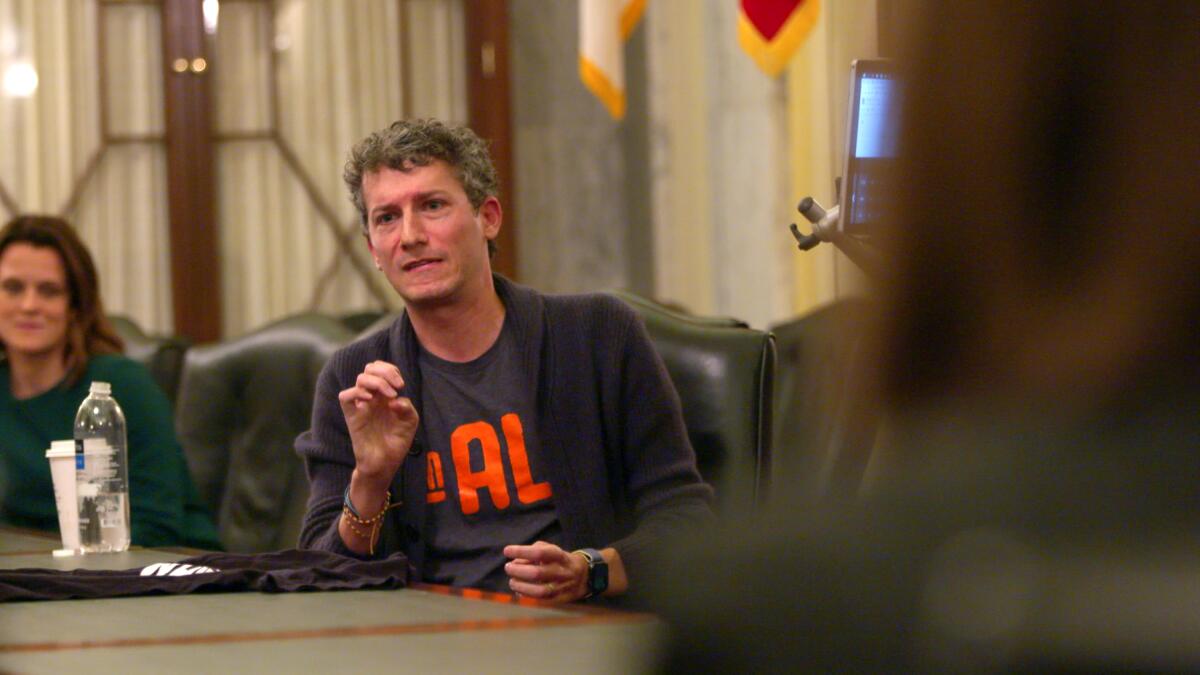
In 2017, at age 37, Brian Wallach, a former attorney in the Obama administration, was diagnosed with amyotrophic lateral sclerosis (ALS), a progressive, incurable neurodegenerative disease — and was given six months to live. This, on the same day that he and his wife, Sandra Abrevaya, brought their second daughter home from the hospital.
Somehow, Wallach is still alive. Although deeply, physically compromised, the onetime federal criminal prosecutor and assistant U.S. attorney has soldiered on, co-founding (with Abrevaya) the vital nonprofit support organization I AM ALS and testifying before Congress on behalf of ALS assistance.
Wallach and Abrevaya’s efforts, which include additional lobbying work on Capitol Hill, helped lead to the 2021 passage and signage of the Accelerating Access to Critical Therapies for ALS Act. The landmark bill, co-written by Wallach, unlocked half a billion dollars for ALS research.
Wallach and Abrevaya’s profound and vital journey was captured by filmmaker Christopher Burke, an old college friend of Wallach’s, for what would become the inspiring and uplifting Prime Video documentary “For Love & Life: No Ordinary Campaign.”
“Brian and Sandra have restored my faith in the ability of a small group of people to change the world,” the TV journalist says of the couple at the heart of “For Love & Life: No Ordinary Campaign.”
The Envelope recently chatted via Zoom with Wallach (whose limited speech capacity requires an interpreter), Abrevaya and Burke about the making of the film (shot from 2019 to 2022) and their mission to increase awareness for the devastating disease.
Let’s start from the beginning: Chris, how did the film come together, and was it always planned as a feature documentary?
Chris Burke: When I found out about Brian’s diagnosis, I offered to help in any way I could. Initially, it was to shoot a little launch promo for I AM ALS. But when I started filming, I realized there was way more going on than we could possibly encapsulate into one 60-second spot. Then, when I tagged along with Brian to his April 2019 testimony in front of the House Appropriations Committee… I was starting to see how Brian and Sandra operated and how their growing movement was coming together. I realized that we were going to be in it for the long haul.
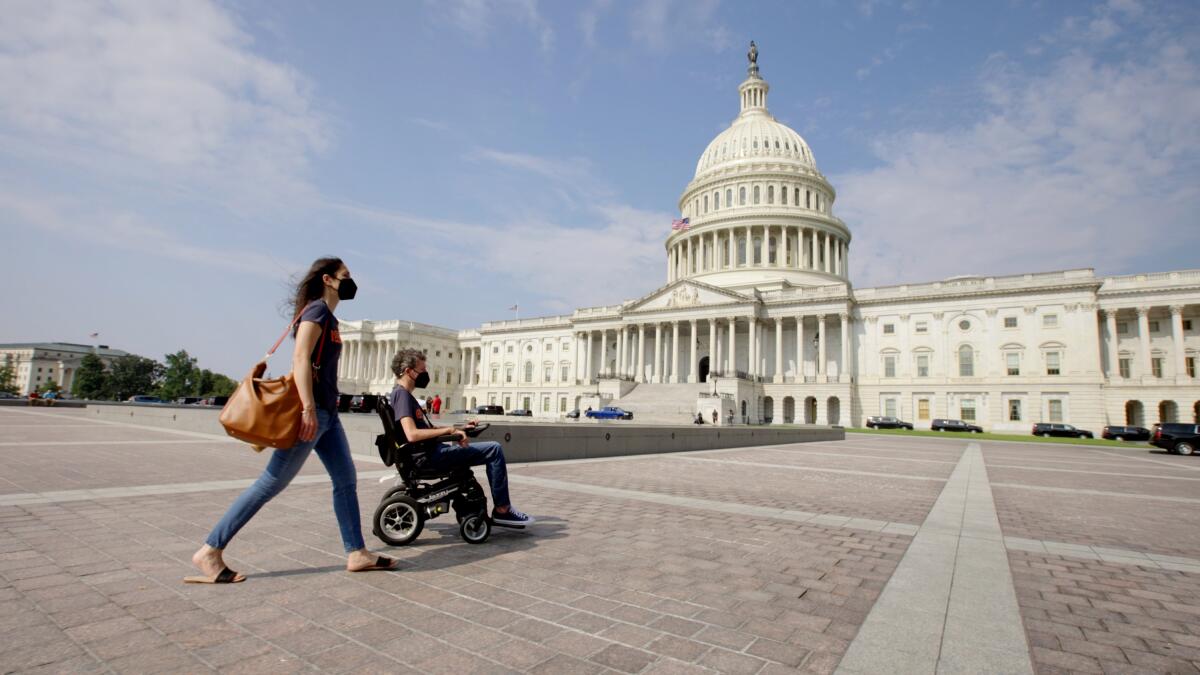
When did you know you were shooting a full-length documentary?
Burke: When I started sharing the raw footage with my producing partner, Tim [Rummel], he was, like, “You’ve got to stick with this. What if we craft it into a feature doc?” We realized ultimately that that would be the most potentially powerful form to reach the largest number of people in a substantial way.
Brian and Sandra, were you always on board with doing the film, knowing how intimate, long and taxing the process could be?
Brian Wallach: I knew right away that it was going to be important to open up all our lives that way. People could see the good parts and the bad parts, and they could understand what ALS looks like and how it impacts people living with it. And I knew Chris would make a beautiful documentary.
Sandra Abrevaya: I was very hesitant, but it turns out every time Brian has a big new idea, I’m nervous about it. Then I end up doing it and he ends up saying, “I told you so.” One thing I did know is that Brian and I are authentically hopeful about this disease transforming from fatal to chronic and that the more we could open up about our own story and really bring people into our lives, the better we could communicate that message.
Chris, this is a fairly compact, fast-paced film, yet also quite informative. What was your approach to shaping the narrative?
Burke: My way in was Brian. I didn’t know anything about ALS any more than Brian did when he was diagnosed. That’s how it starts for a lot of people; I was learning along the way. Brian and Sandra’s love story forms the spine of [the film] but then we had to make people understand the basics of this disease: what it is, what it does to bodies, what it does to families, what it does to caregivers and how this movement, simultaneously led by these two, is combating that in such an amazing way.
Sounds like a lot to balance.
Burke: It was. We made a very conscious choice to keep it on the briefer side because it is challenging subject matter. It’s not meant to be a fully in-depth academic study. It’s designed to give a lot of different threads to pull on all under the umbrella of this personal story of Brian and Sandra, but also of the other [ALS-affected] families who we feature as well. We really wanted to underscore the cohesive community action of a lot of different people.
Brian, knowing what you know now, what do you tell people with ALS who are also given six months to live?
Wallach: To not be afraid and to ask for help, because everybody will need help along the journey. I also say that I’m more hopeful today than when I was diagnosed because we have a lot of treatments in the pipeline. And I know that some of them will help us all live longer and be here to see ALS become a chronic disease.
More to Read
From the Oscars to the Emmys.
Get the Envelope newsletter for exclusive awards season coverage, behind-the-scenes stories from the Envelope podcast and columnist Glenn Whipp’s must-read analysis.
You may occasionally receive promotional content from the Los Angeles Times.
